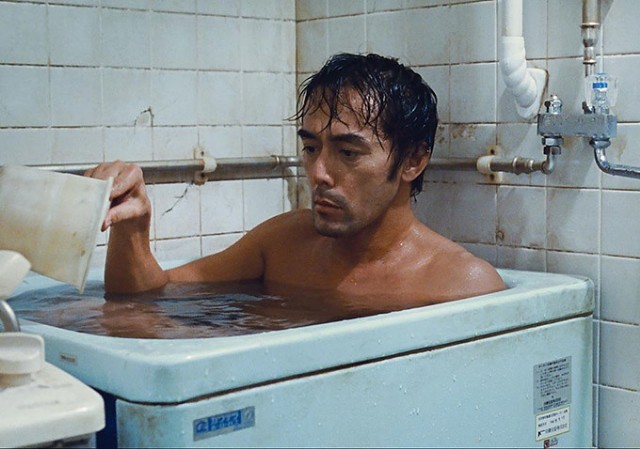
Kore-eda Hirokazu's new film, After the Storm, about a dead-beat dad getting over his divorce/letting go is as subtle as any other of his films. When I first heard the title, it immediately reminded me of the conversation I had with Kore-eda when he was presenting Like Father, Like Son. I asked him if the Fukushima disaster and the Great Eastern Earthquake of 2011 changed him as a filmmaker. He said the real impact of the disaster on Japan and its people was yet quite unknown. After a pause, he told me this:
But I think this time, in terms of making this film (Like Father, Like Son), there were a couple of motivations for it. One definitely had to be the earthquake. I think it really enforced the idea of bonds in Japan. The idea actually became very trendy. In a way, it wasn't so good in Japan before (in that regard). But the idea of bonds and people supporting each other and all of Japan becoming one has become very common in Japan. I've been thinking about that, about how we can reduce that feeling to a small community that is family. So I think in terms of how I came up with the idea for the movie about a man and his bond with his family, I suppose the earthquake played the role.
The idea of family bond is not a stretch for Kore-eda, considering his filmography. Then again, nor is death (Maborosi, Afterlife). But the implication of a incoming storm in After the Storm here is definitely about bonding and renewal than death and destruction.
A Kore-eda regular Abe Hiroshi (Still Walking, I Wish), a long, sad faced actor, plays a one-hit-wonder, washed up writer Ryota, still carrying the torch for his ex Kyoko (Maki Yoko of Bitter Honey, Like Father, Like Son). He spends most of his time blowing money (that he earned at the detective agency - 'research for a book' temp job which became permanent) at the racetrack. With the custody arrangement, and sandwiched between his always patient aging mother (always marvelous Kiki Kirin) and grilling sister, he has to resort seeing his son who's in elementary school only on the weekends and constantly being asked for alimony payments.
Using his private detective skills, he starts spying on Kyoko's new romance with a manly man who coaches his son in a little league team. He is not a bad guy, but Ryota can’t help constantly asking his son if Kyoko is falling for him or not. Obviously Ryota wants to give it another go at her, even though it is a pretty hopeless prospect.
The news of incoming storm as an excuse, Ryota takes his son to his mother's and maroon themselves there with furious Kyoko, over one stormy night.
The Typhoon season (in Summer) is a yearly occurrence in Japan. Just like earthquakes, violent storms are part of Japanese people’s daily lives. But nothing too dramatic happens in After the Storm. Ryota gets to relive one more night, just like old times, with his wife, son eating his mother's food. Spending one last time with them as gajoku/family, before he lets his old feelings go and grows up and moves on, thanks to the storm. Thanks to the mother nature to smooth things over.
Taking on many Japanese social issues - divorce, unemployment, elderly care, albeit very subtly, After the Storm is another gentle family tale with great measured performances from everyone involved.
In Kore-eda’s world, the storm is not a cause of destruction and pain but a helping agent to bond with each other- something the current Japanese society has lost due to modern life taking its course. But the film is so old-fashioned and soft-edged, it hardly registers on an emotional level. Still a great little film. But after the greatness that was Our Little Sister, After the Storm feels like a minor Kore-eda.
After the Storm opens in New York and Lost Angeles on Friday March 17.